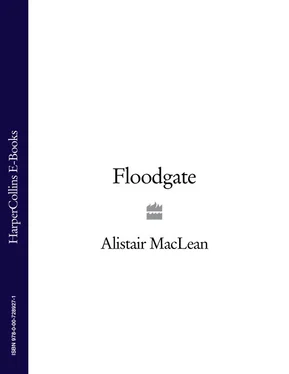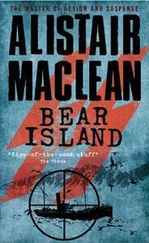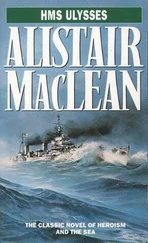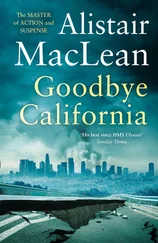Alistair Maclean
Floodgate
Copyright Copyright Dedication Prologue Chapter One Chapter Two Chapter Three Chapter Four Chapter Five Chapter Six Chapter Seven Chapter Eight Chapter Nine Chapter Ten Chapter Eleven Chapter Twelve Keep Reading About the Author By Alistair MacLean About the Publisher
This novel is entirely a work of fiction. The names, characters and incidents portrayed in it are the work of the author’s imagination. Any resemblance to actual persons, living or dead, events or localities is entirely coincidental.
HARPER
An imprint of HarperCollins Publishers Ltd. 1 London Bridge Street London SE1 9GF
www.harpercollins.co.uk
First published in Great Britain by William Collins Sons & Co. Ltd 1983 then in paperback by Fontana 1984
Copyright © Alistair MacLean 1983
Alistair MacLean asserts the moral right to be identified as the author of this work
A catalogue record for this book is available from the British Library
All rights reserved under International and Pan-American Copyright Conventions. By payment of the required fees, you have been granted the non-exclusive, non-transferable right to access and read the text of this ebook on-screen. No part of this text may be reproduced, transmitted, down-loaded, decompiled, reverse engineered, or stored in or introduced into any information storage and retrieval system, in any form or by any means, whether electronic or mechanical, now known or hereinafter invented, without the express written permission of HarperCollins ebooks
This book is sold subject to the condition that it shall not, by way of trade or otherwise, be lent, re-sold, hired out or otherwise circulated without the publisher’s prior consent in any form of binding or cover other than that in which it is published and without a similar condition including this condition being imposed on the subsequent purchaser
HarperCollins Publishers has made every reasonable effort to ensure that any picture content and written content in this ebook has been included or removed in accordance with the contractual and technological constraints in operation at the time of publication
Source ISBN: 9780006169116
Ebook Edition © SEPTEMBER 2009 ISBN: 9780007289271
Version: 2016-10-11
To David and Judy
Cover Page
Title Page Alistair Maclean Floodgate
Copyright
Dedication
Prologue
Chapter One
Chapter Two
Chapter Three
Chapter Four
Chapter Five
Chapter Six
Chapter Seven
Chapter Eight
Chapter Nine
Chapter Ten
Chapter Eleven
Chapter Twelve
Keep Reading
About the Author
By Alistair MacLean
About the Publisher
The two oddly similar incidents, although both happening on the night of February 3rd, and both involving army ammunition storage installations, had no discernible connection.
The occurrence at De Doorns in Holland was mysterious, spectacular and tragic: the one at Metnitz in Germany was a good deal less mysterious, unspectacular and faintly comic.
Three soldiers were on guard at the Dutch ammunition dump, set in a concrete bunker one and a half kilometres north of the village of De Doorns, when, about one-thirty in the morning, the only two citizens who were awake in the village reported a staccato burst of machine-pistol fire—it was later established that the guards were carrying machine-pistols—followed immediately by the sound of a gigantic explosion, which was later found to have blasted in the earth a crater sixty metres wide by twelve deep.
Houses in the village suffered moderately severe damage but there was no loss of life.
It was presumed that the guards had fired at intruders and that a stray bullet had triggered the detonation. No traces of the guards or supposed intruders were found afterwards.
In Germany, a group calling themselves the Red Army Faction, a well-known and well-organized band of terrorists, claimed that they had easily overcome the two-man guard at the US Nato arms dump near Metnitz. Both men, it had been claimed, had been drinking and when the intruders had left both were covered with blankets—it had been a bitterly cold night. The US Army denied the drinking allegation but made no mention of the blankets. The intruders claimed that they had acquired a quantity of offensive weapons, some so advanced that they were still on the secret list. The US Army denied this.
The West German press heavily favoured the intruders’ account. When it came to penetrating army bases, the Red Army Faction had an impressive record: when it came to protecting them, the US Army had an unimpressive one.
The Red Army Faction customarily list the nature of their thefts in meticulous detail. No such details of the alleged secret weapons were published. It has been assumed that, if the Faction’s account was true, the US Army or the US Army through the German government, had issued a stop order to the press.
‘It is clear that it is the work of a madman.’ Jon de Jong, tall, lean, grey, ascetic and the general manager of Schiphol airport, looked and sounded very gloomy indeed and, in the circumstances, he had every justification in looking and sounding that way.
‘Insanity. A man has to be deranged, unhinged, to perform a wanton, mindless, pointless and purposeless task like this.’ Like the monkish professor he so closely resembled, de Jong tended to be precise to the point of pedantry and, as now, had a weakness for pompous tautology.
‘A lunatic.’
‘One sees your point of view,’ de Graaf said. Colonel van de Graaf, a remarkably broad man of medium height with a deeply trenched, tanned face, had about him an unperturbability and an unmistakable cast of authority that accorded well with the Chief of Police of a nation’s capital city. ‘I can understand and agree with it but only to a certain extent. I appreciate how you feel, my friend. Your beloved airport, one of the best in Europe—’
‘Amsterdam airport is the best in Europe.’ De Jong spoke as if by rote, his thoughts elsewhere. ‘Was.’
‘And will be again. The criminal responsible for this is, it is certain, not a man of a normal cast of mind. But that does not mean that he is instantly certifiable. Maybe he doesn’t like you, has a grudge against you. Maybe he’s an ex-employee fired by one of your departmental managers for what the manager regarded as a perfectly valid reason but a reason with which the disgruntled employee didn’t agree. Maybe he’s a citizen living close by, on the outskirts of Amsterdam, say, or between here and Aalsmeer, who finds the decibel level from the aircraft intolerably high. Maybe he’s a dedicated environmentalist who objects, in what must be a very violent fashion, to jet engines polluting the atmosphere, which they undoubtedly do. Our country, as you are well aware, has more than its fair share of dedicated environmentalists. Maybe he doesn’t like our Government’s policies.’ De Graaf ran a hand through his thick, iron-grey hair. ‘Maybe anything. But he could be as sane as either of us.’
‘Maybe you’d better have another look, Colonel,’ de Jong said. His hands were clenching and unclenching and he was shivering violently. Both of those were involuntary but for different reasons. The former accurately reflected an intense frustration and anger; the latter was due to the fact that, when an ice-cold wind blows east-north-east off the Ijsselmeer, and before that from Siberia, the roof of the main concourse of Schiphol airport was no place to be. ‘As sane as you or I? Would you or I have been responsible for this—this atrocity? Look, Colonel, just look.’
Читать дальше












